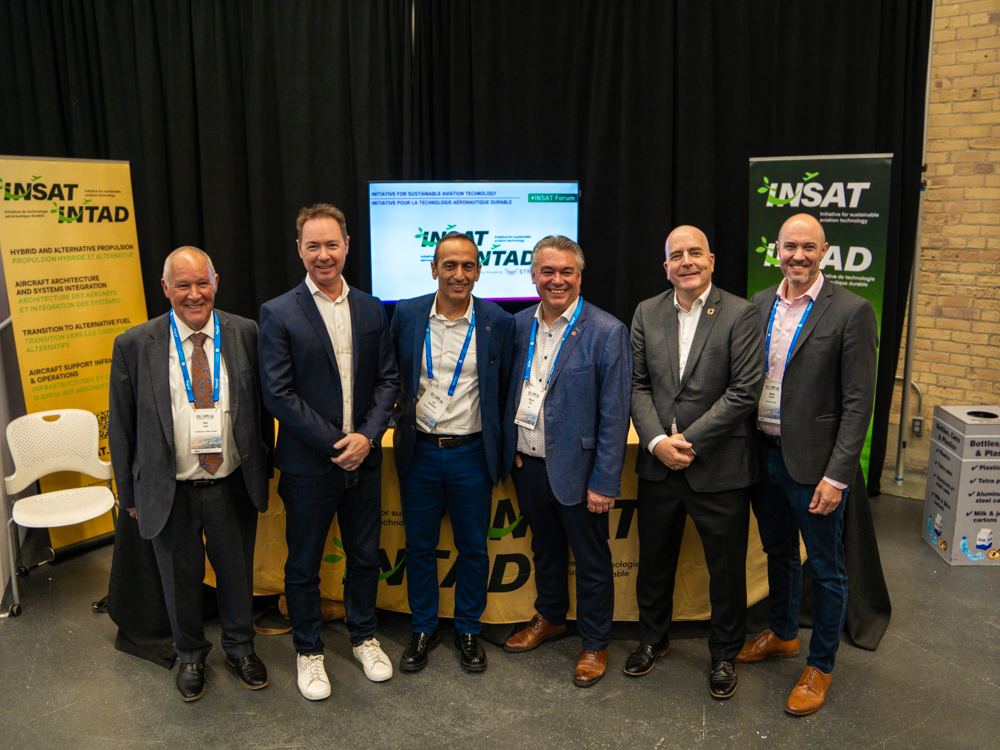Horizon Aircraft Awarded “USD2 Million INSAT Grant, Helps Fund All-Weather eVTOL Project”
Canada-based Horizon Aircraft recently announced a USD2 million grant from the INSAT program (Initiative for Sustainable Aviation Technology) to help fund CRYSTAL, an all-weather eVTOL project in partnership with Flight Centre of Excellence (3C) and the University of Toronto (UOT), reports a press release. The program has an estimated total expenditure of USD10.5 million.
The release explains, “Project CRYSTAL (Canadian Research Yielding SusTainable All-weather Lift system) is to focus on developing and testing an all-weather vertical propulsion system for eVTOL aircraft like Horizon Aircraft’s hybrid eVTOL, the Cavorite X7.”
It continues, “The first phase of the project will focus on characterising advanced ice detection technologies and protective technologies such as ice-phobic and electrothermal coating solutions developed by UOT. With support from 3C, the second phase will focus on testing and analyzing the viability of the technologies on the Cavorite X7.”
Michel Dion, CEO of Strix , (non-profit organisation powering the INSAT program), commented, “By supporting innovative companies like Horizon, we are helping to strengthen Canada’s global competitiveness while accelerating the transition toward a more sustainable, forward-looking aerospace industry-one that reflects the ingenuity and ambition of Canadian entrepreneurs.”
Strix is dedicated to promoting innovation and collaborative research in the Canadian aerospace industry and related sectors.
Phil Cole, VP of 3C Business Development, remarked, “Project CRYSTAL is profoundly important, not only to our partners in this project at Horizon and UOT, but potentially to any traditional fixed wing or rotary wing air vehicle, advanced air mobility vehicle and drone that wishes to operate in climactic conditions that could lead to the accretion of ice.”
A majority of helicopters cannot operate in known icing conditions due to a risk of ice forming on rotor blades or in engine inlets, which can lead to severe vibrations, decreased stability, power failure and loss of lift.
Despite these prohibitive operating limitations, helicopters currently play an important role globally, flying critical missions such as medevac, disaster relief, and in the Defence sector. Developing an all-weather eVTOL that is safer, faster, more economical and better for the environment, like the Cavorite X7, could provide a better solution for executing a wide range of important operations.

Phil Cole
Brandon Robinson, co-Founder and CEO of Horizon, explained, “Our team has calculated that if an all-weather Cavorite X7 replaces only 4 percent of the global helicopter fleet, a reduction of 2.6 billion pounds of CO2e could be realized annually.”
He continued, “In addition to being more sustainable, our aircraft is projected to cost up to 75 percent less per kilometre than a helicopter while moving more people or cargo at much higher cruise speeds.”
Horizon plans to certify the Cavorite X7 ‘for Flight Into Known Icing (FIKI)’. This is a rare certification across early concept eVTOLs and helicopters.
For further information
https://strix.aero/programs/insat/6
(Top image: L to R): Phil Cole (VP Business Development, 3C), Brandon Robinson (Co-Founder & CEO, Horizon Aircraft), Prof. Ali Dolatabadi (Faculty of Applied Science & Engineering, UofT), Michel Dion (CEO, Strix), Denis Godin (CTO & Deputy CEO, Strix) and Jason O’Neill (COO, Horizon Aircraft)
For the latest news, insights and content regarding the global Advanced Air Mobility market, please join the following eVTOL Insights channels: WhatsApp, Facebook, Instagram, Spotify, Apple Podcasts, YouTube, X and LinkedIn


